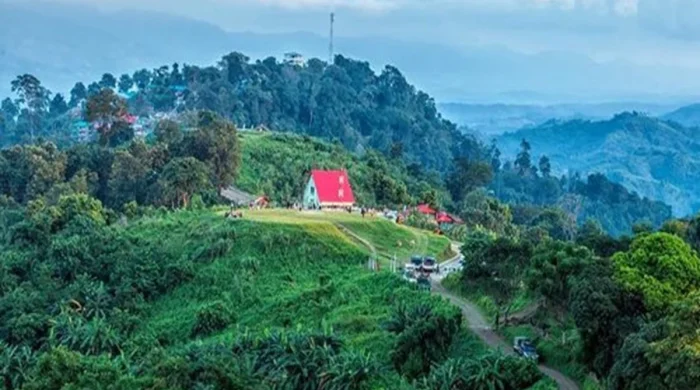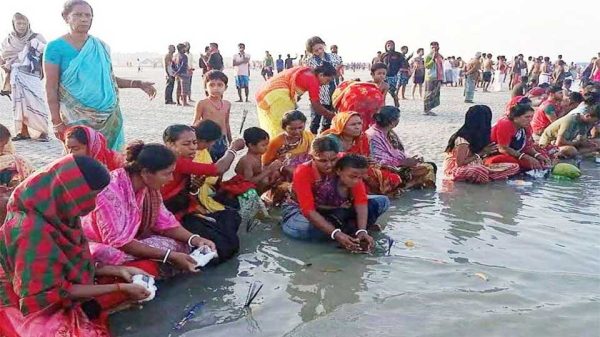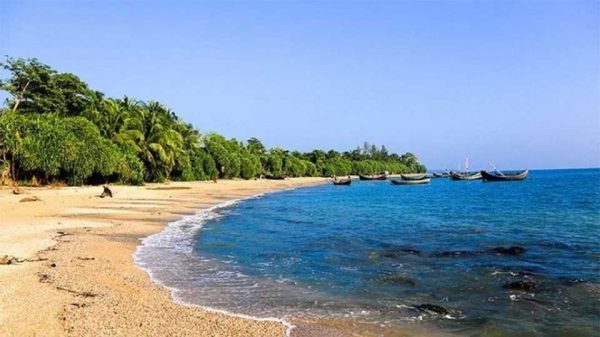Greece: How to apply for a seasonal work visa
- আপডেট সময় মঙ্গলবার, ৮ আগস্ট, ২০২৩

Seasonal work can take different forms in different countries, but many of the seasonal work visas available in Europe are linked to the agricultural sector.
Most seasonal work visas are only available for a certain period in the year, perhaps to cover the harvest, or to cover food processing for a specific period — like Christmas time in the poultry sector, for example.
Generally, a seasonal visa doesn’t allow applicants to work in other jobs at the same time or before or after their period in the country. They also typically require visa holders to arrive in Europe shortly before the job is due to start and leave shortly after it ends.
Although you probably won’t be able to work a second job during your stay, some countries allow applicants to study or undertake training programs alongside their work. Make sure you check the specifics of your visa and country before you apply for a course.
For Greece, here are the most important things for seasonal work visa applicants to know.
At a glance
- According to the EU Immigration portal, seasonal work in Greece applies to employment up to a maximum of six months per year.
- Greek consular authorities will issue visas for seasonal employment matched to the employment contract, which also cannot exceed six months.
- The work visa you will be issued is “exclusively for the specific post and to the specific employer who initiated the invitation procedure.” So be aware: once you are in Greece on a visa tied to a specific job and employer, it will be difficult to take up employment elsewhere without breaking visa rules.
- Seasonal work in Greece covers several different industries, including agriculture, fisheries and hospitality and hotel work. If you work in fisheries, you can have a seasonal employment visa for a maximum of ten months per year. Here too, your visa will be tied to your employer and the job you are being invited to do.
- Greece has some bilateral agreements with certain countries like Egypt, Bangladesh and Albania that also cover seasonal employment and associated visas.
- The agreement with Bangladesh pledged to grant seasonal work visas to about 4,000 Bangladeshis each year when it was announced in 2022. Around 15,000 undocumented Bangladeshis already working in Greece were set to have their status legalized under the scheme, which was due to begin last autumn, Greek Migration Minister Notis Mitarachi told InfoMigrants at the time.
- Holders of the Bangladeshi work visas will be allowed to work for five consecutive years in Greece for up to nine months a year. For the remaining three remaining months, the worker must leave the country before returning for the next nine months of work. The employee should be certain about where they will be working, and the employer is allowed to offer training. The worker is expected to leave Greece once the five years are up.

How many permits are usually issued?
- The Greek government issues quotas every two years and sets the maximum number of jobs for seasonal employment by region and job sector. This figure varies by year. Sometimes 15,000 jobs have been on offer, sometimes just 5,000, other times more than 60,000.
Where to look for a job
- Economic and Social Council of Greece
- Greek Manpower Employment organization
- Greek regions for local employment on their territory
- Ministry of shipping and Island policy
- Greek National Tourism Organization GNTO
- Refugee.info in Greece suggests these portals to look for jobs in Greece:
- Generation 2.0 Red (in English and Greek)
- Skywalker (in Greek)
- Kariera (in Greek)
- Vacancies in Greece (in English)
Where you can find jobs at NGOs in Greece
Requirements
- If you overstay your visa, it will be revoked. This is why it is crucial to leave the country for the required amount of time each year. Third country nationals need specific visas to enter other EU countries from Greece, so the expectation is that you return to your home country for the time you are not allowed to work. This can be logistically complicated for those who do not want to spend their savings on a trip home.

How to apply
- Greece charges administrative fees for the seasonal work visas. For the Bangladeshi scheme, for instance, administrative fees cost €120, while €150 is set for other nationals.
- You should apply for your visa at the Greek embassy or consulate in your country of origin.
- You will need to apply for an employment visa to be able to work in Greece.
- You will need a declaration from your employer that you have been invited for a specific job.
- You must provide two copies of the employment contract signed and approved by the labor inspectorate. These contracts need to mention the nature and duration of employment as well as your salary, which cannot be lower than the minimum wage for unskilled workers.
- You must provide a copy of an Inland Revenue Declaration noting the area and owner of any livestock you will be working with.
Also read: Greece reports plunge in migrant population and shifting trends
- You must provide a declaration of housing that will be offered to you for the duration of your contract and a social security deposit equivalent to two month’s contributions.
- Once your employer’s request has been approved, you will be granted a visa.
- If you are working in fisheries, the employer should submit a fee of €15 on your behalf, as well as a detailed table with personal information of the persons invited, a certificate from the competent port authority mentioning where your boat is registered, the maximum number of people allowed on the boat and the status of the ship.
- Forms can now be filled out digitally here.
Unions and services
- Benefits and health services in Greece are supplied via the National Organization for the Provision of Health Services (EOPYY) based on the Unified Regulation of Health Benefits (EKPY).
- If you are employed and insured in Greece, you are required to have paid 50 days of insurance in the previous year of illness or in the previous 15 months before you fell ill in order to qualify.
- Employees should be paid their salary if after at least ten days of employment he or she is prevented from working for a good reason that is not his or her fault.
- Hellenic Manpower Employment Organization
- National Institution for Social Security
- Ministry of Employment and Social Affairs
- Labour Inspection Corps
- Information Center for Employees & Unemployed
- Ministry of Rural Development and Foods
- Ministry of Tourism
- Greek Tourism Confederation
- Digital Gate connecting online services of public service
- Greek Ministry of Migration
- General Secretariat for Research and Innovation
- Greek Ministry of Foreign Affairs
- Where to find the consulates or embassies abroad
Major trade unions in Greece
There are two major trade union confederations in Greece:

Know your rights
- You need a proper contract to obtain your seasonal work visa in Greece. Employers are required by law to include their name and your name, the location of your employment, your employment category and duties, the date of the first day of work and the job’s duration in the contract.
- You are entitled to paid leave during your contract.
- Rules should be clearly set out in your contract addressing procedure if you or your employer decides to terminate the work early. Employers should have valid reasons for doing so and are required to outline the early termination process as well as the notification period and any compensation that would be due.
- The contract should include your salary, any kind of extra earnings, your daily and weekly working hours and any collective agreements under which your contract might apply.
- Legal working hours should not exceed 40 per week. In a five-day working week, this would equate to eight hours per day. If you are working six-day weeks, you shouldn’t be working longer than six hours per day and you are entitled to a break of 40 minutes per day.
- If you work more than the legal working hours, you are entitled to overtime. Employers can expect you to work up to five hours of overtime per week or eight hours if you are on a six-day week. Your hourly wage for the additional hours should be increased by 20%. If you work over 45 hours per week for a five-day week, or over 48 hours per week for a six-day week, your hourly wage for those overtime hours should be increased by 40% per hour.
- Overtime and the payment of it is only considered legal if registered by the employer before an employee is asked to do it.

- You should receive a break lasting a minimum of 30 minutes at least every four hours. Employers are not allowed to amass your breaks at the beginning or end of your work. However, break time is not working time, so you are not paid for the time you are on your break.
- Salaries for seasonal work are not pre-set and are usually subject to collective agreements. Sometimes accommodation and meals are offered as “non-wage benefits”. Salaries range from around €620 per month to around €4,500 per month. For example: someone working as a dishwasher in a restaurant or hotel might expect to earn around €570 per month, while someone working as a barista might expect to earn around €900 per month. If you are employed as a cook, you could expect a wage in the region of €1,300 per month. Waiters and waitresses earn around €720 per month, while bartenders receive around €930 per month.
- Wages are expected to be paid directly into the bank accounts of the employee, not cash in hand. Salaries might be paid on a daily, weekly or monthly basis, depending on your employer, but they should make that clear from the start.
- Employers are obliged to ensure you are safe at work and any safety-related training or equipment should be provided free of charge.
- If you have a proper working contract, you should be insured for medical care and a pension. However, some seasonal workers — especially those in agriculture — still require insurance from their country of origin. These workers should apply for an A1 PD and a European Health Insurance Card before their departure. Here is a European Commission website with more information about the card and how to apply.
- Greek legislation tries to protect seasonal workers working in the tourism sector. They have a right to reemployment the following season provided they apply for it at the right time.
- During the ‘dead period’ when there is not so much seasonal work, seasonal workers should be entitled to some kind of unemployment benefit supplied by the Greek PES (OAED).

















